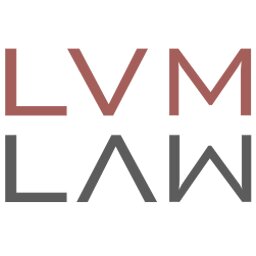Best Bad Faith Insurance Lawyers in City Hall
Share your needs with us, get contacted by law firms.
Free. Takes 2 min.
List of the best lawyers in City Hall, Singapore
About Bad Faith Insurance Law in City Hall, Singapore
Bad faith insurance occurs when an insurance company fails to uphold its duty to act in good faith towards its policyholders. This can include denying valid claims, delaying the claims process, or acting in a deceptive manner. In City Hall, Singapore, there are laws in place to protect policyholders from such unfair practices.
Why You May Need a Lawyer
You may need a lawyer in cases of bad faith insurance when your claim has been unfairly denied, delayed, or undervalued by your insurance company. A lawyer can help you understand your rights, negotiate with the insurance company, and if necessary, pursue legal action to seek the compensation you deserve.
Local Laws Overview
In Singapore, the Insurance Act and regulatory guidelines set by the Monetary Authority of Singapore govern the insurance industry. These laws require insurance companies to act in good faith and deal fairly with policyholders. If an insurance company is found to have acted in bad faith, they may face penalties and be required to compensate the policyholder.
Frequently Asked Questions
Q: What is considered bad faith insurance?
A: Bad faith insurance can include denying valid claims, delaying the claims process without reason, or misleading policyholders about their coverage.
Q: How can I prove bad faith insurance?
A: Evidence such as communications with the insurance company, claim denials, and expert opinions can be used to prove bad faith insurance.
Q: What compensation can I receive for bad faith insurance?
A: Compensation for bad faith insurance may include the full payment of your claim, additional damages for emotional distress, and legal fees.
Q: Can I sue my insurance company for bad faith?
A: Yes, you can sue your insurance company for bad faith and seek compensation for any losses you have incurred.
Q: How long do I have to file a bad faith insurance claim?
A: The time limit to file a bad faith insurance claim can vary, so it is important to consult with a lawyer as soon as possible.
Q: Will hiring a lawyer increase my chances of success in a bad faith insurance claim?
A: Yes, hiring a lawyer who is experienced in bad faith insurance cases can greatly increase your chances of success in obtaining the compensation you deserve.
Q: Can I file a complaint against my insurance company for bad faith?
A: Yes, you can file a complaint with the Financial Industry Disputes Resolution Centre or seek legal advice on how to address bad faith insurance practices.
Q: What are the common signs of bad faith insurance practices?
A: Common signs of bad faith insurance practices include unjustified claim denials, unreasonable delays in claims processing, and misrepresenting policy terms.
Q: Is there a government agency that oversees bad faith insurance cases in City Hall, Singapore?
A: The Monetary Authority of Singapore regulates the insurance industry and may investigate cases of bad faith insurance practices.
Q: What should I do if I suspect my insurance company is acting in bad faith?
A: Contact a lawyer who specializes in bad faith insurance cases to review your situation and advise you on the best course of action.
Additional Resources
If you need legal advice or assistance with a bad faith insurance case in City Hall, Singapore, you can contact the Law Society of Singapore or the Singapore Academy of Law for referrals to qualified lawyers who specialize in insurance law.
Next Steps
If you believe you are a victim of bad faith insurance practices in City Hall, Singapore, it is important to seek legal advice as soon as possible. Contact a lawyer with experience in insurance law to review your case and help you understand your rights and options for seeking compensation.
Lawzana helps you find the best lawyers and law firms in City Hall through a curated and pre-screened list of qualified legal professionals. Our platform offers rankings and detailed profiles of attorneys and law firms, allowing you to compare based on practice areas, including Bad Faith Insurance, experience, and client feedback.
Each profile includes a description of the firm's areas of practice, client reviews, team members and partners, year of establishment, spoken languages, office locations, contact information, social media presence, and any published articles or resources. Most firms on our platform speak English and are experienced in both local and international legal matters.
Get a quote from top-rated law firms in City Hall, Singapore — quickly, securely, and without unnecessary hassle.
Disclaimer:
The information provided on this page is for general informational purposes only and does not constitute legal advice. While we strive to ensure the accuracy and relevance of the content, legal information may change over time, and interpretations of the law can vary. You should always consult with a qualified legal professional for advice specific to your situation.
We disclaim all liability for actions taken or not taken based on the content of this page. If you believe any information is incorrect or outdated, please contact us, and we will review and update it where appropriate.














